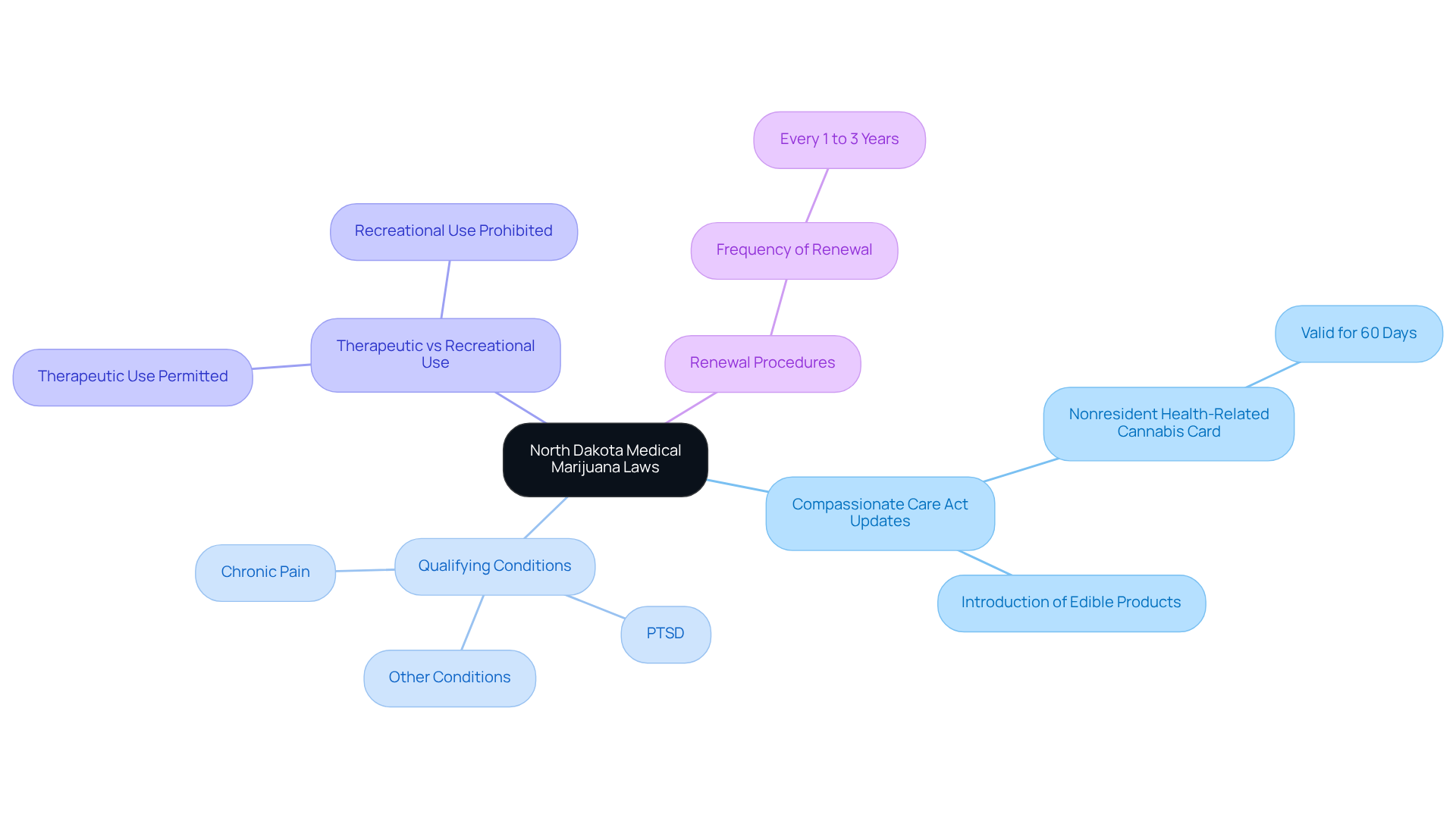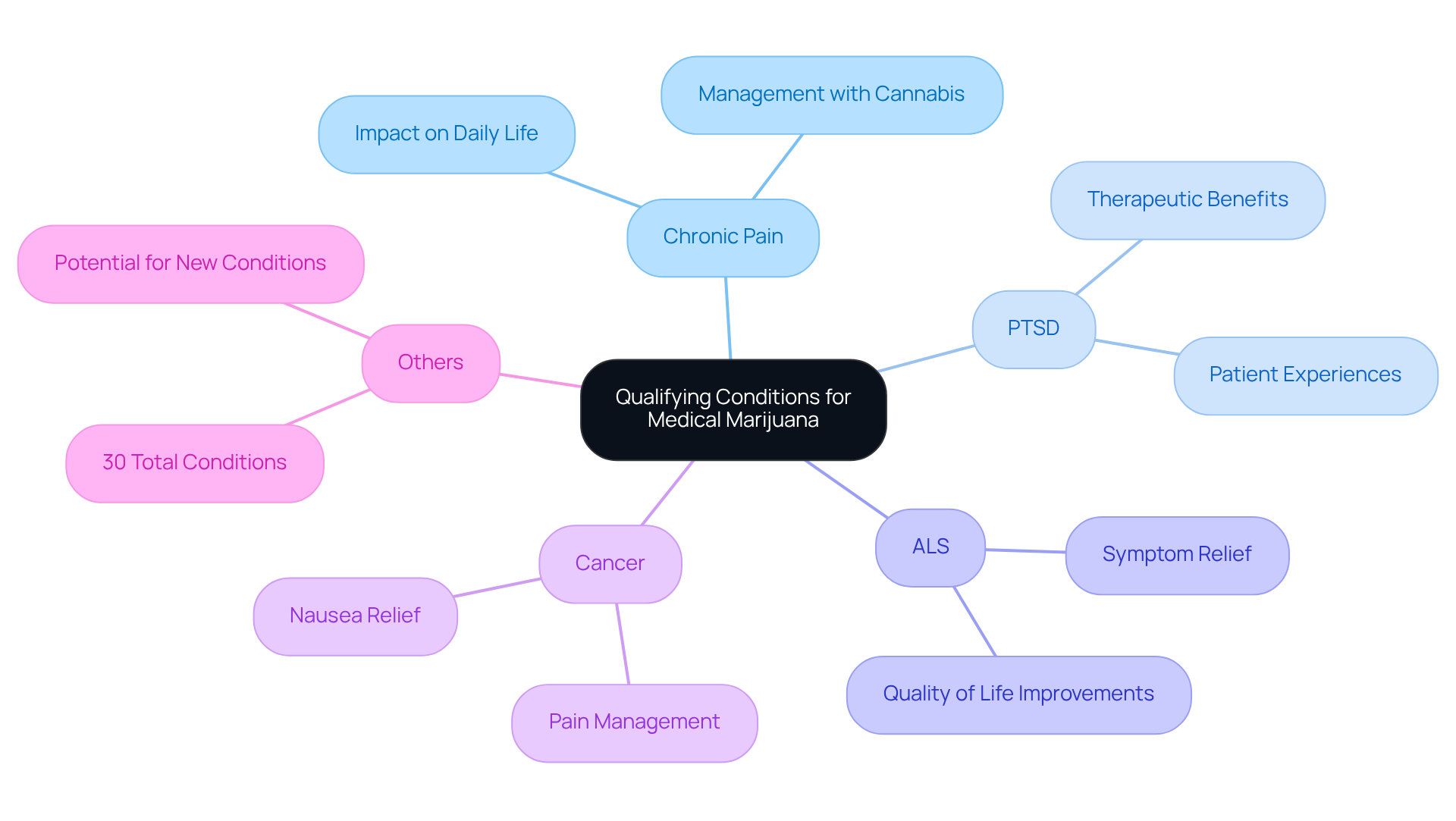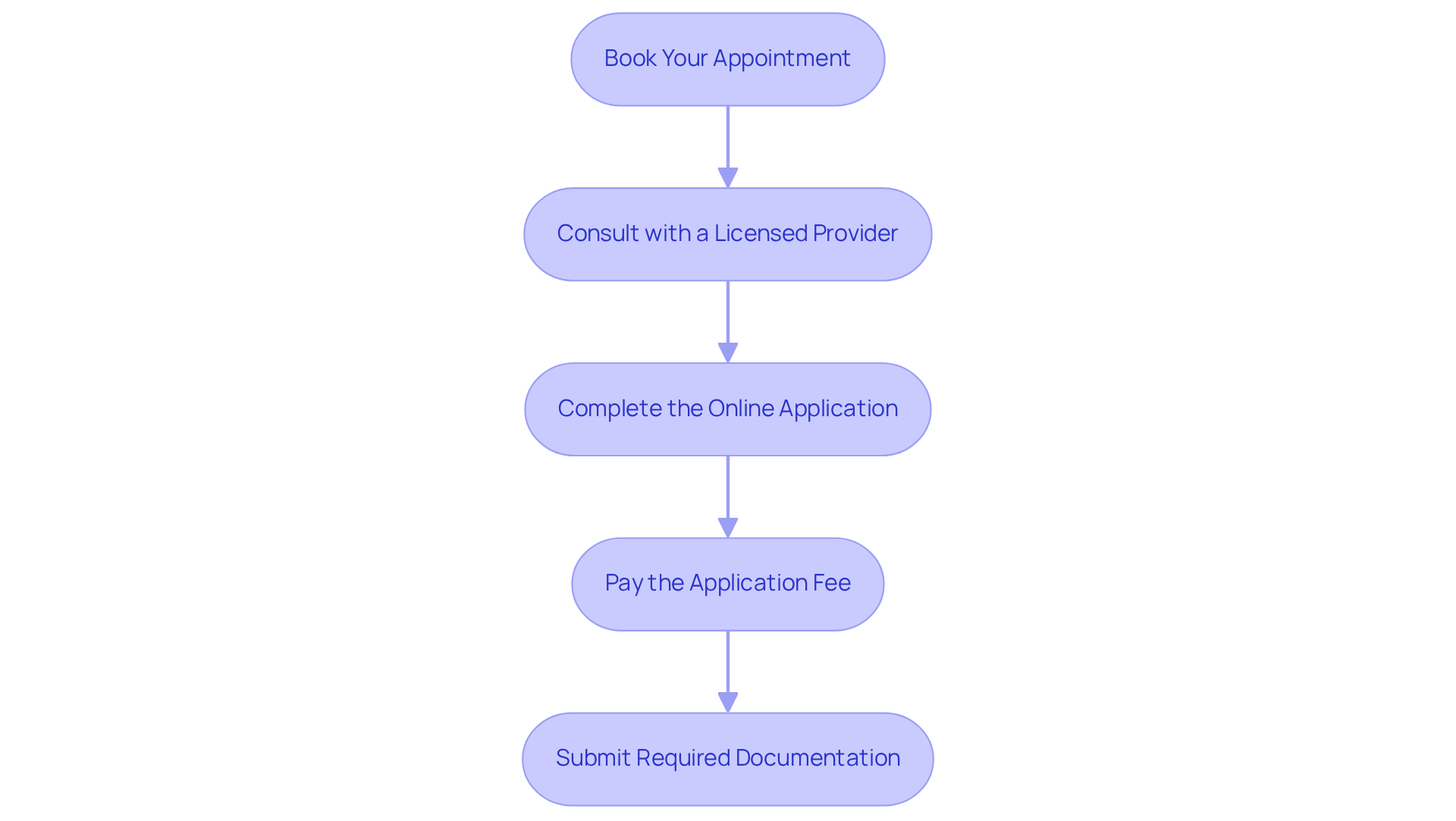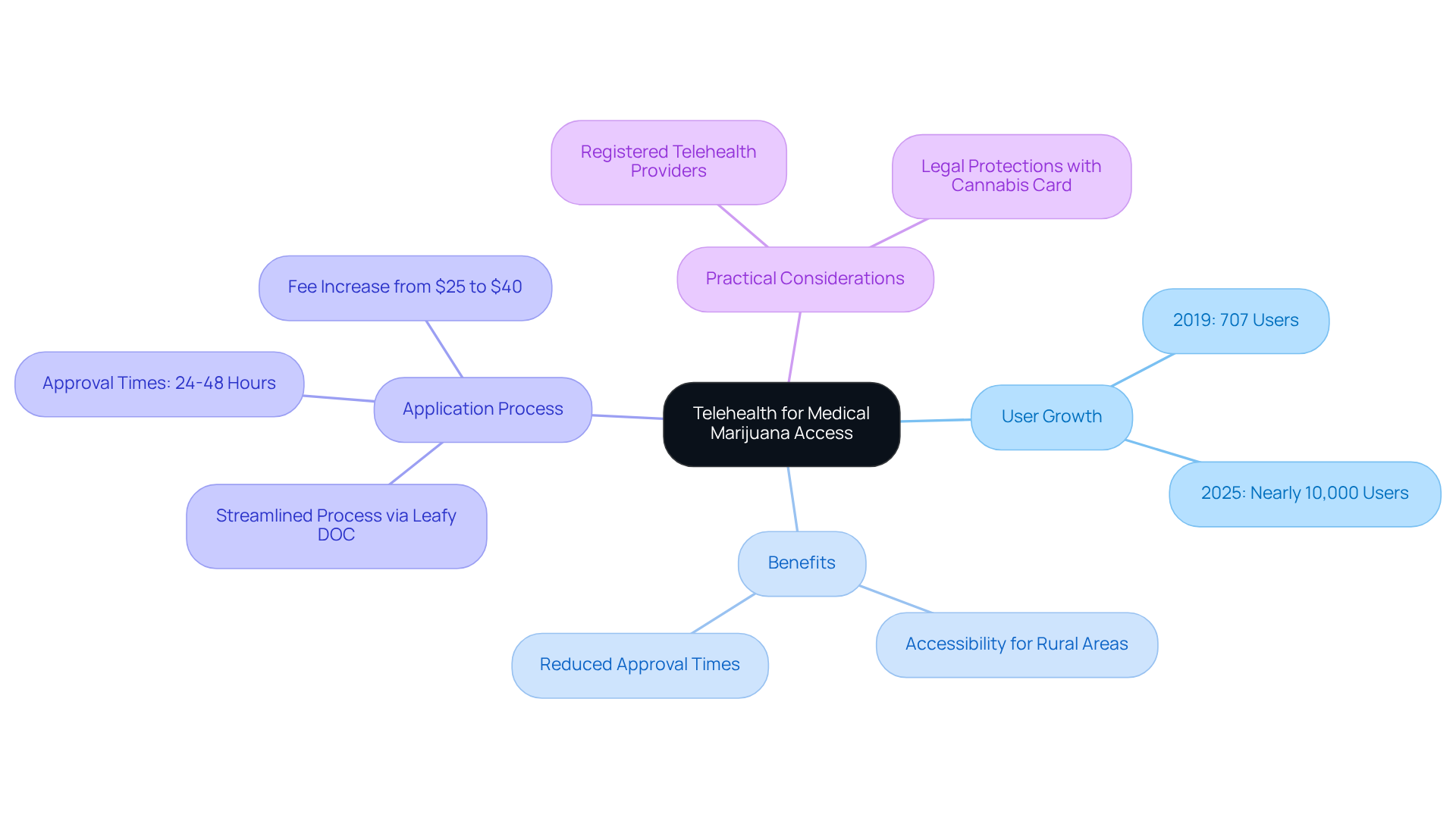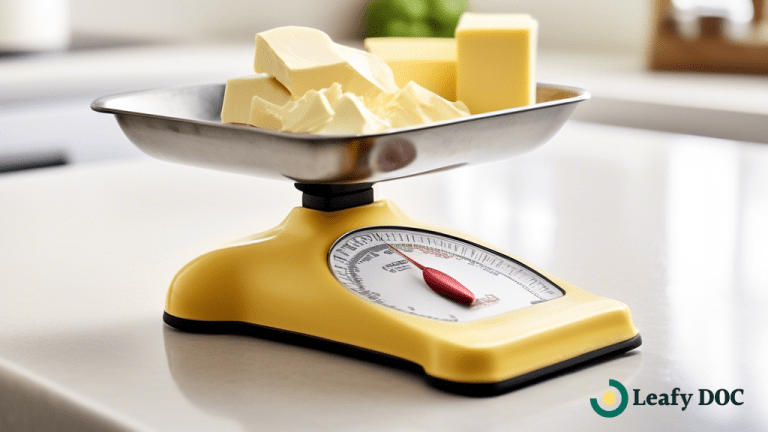North Dakota Medical Marijuanas: Steps to Access Treatment
by Maya Green · July 18, 2025
Access North Dakota medical marijuanas through updated laws, qualifying conditions, and application steps.

Overview
Accessing medical marijuana treatment in North Dakota can feel overwhelming, but understanding the process can make it easier for you. To obtain a cannabis card, you’ll need a diagnosis of qualifying conditions and a consultation with a licensed healthcare provider. It’s important to remember that this journey is about your well-being and finding relief.
The steps to secure this card are straightforward, yet they require your attention to state regulations. You may find that utilizing telehealth services offers a convenient and efficient way to connect with healthcare providers, especially if you have mobility challenges or live in rural areas. This option can help ease some of the burdens you might face during this process.
As you navigate these steps, know that you are not alone. Many others share similar experiences, and it’s okay to seek help and guidance along the way. With the right support, you can take meaningful steps toward accessing the treatment you need. Remember, your health and comfort are paramount, and there are resources available to assist you in this journey.
Introduction
Navigating the medical marijuana landscape in North Dakota can feel both daunting and rewarding. Many patients are experiencing the recent updates to the Compassionate Care Act, which now includes provisions for nonresidents and the introduction of cannabis-infused edibles. These changes open up more avenues than ever for accessing therapeutic cannabis, offering hope to those in need.
However, it’s important to remember that understanding the specific qualifying conditions and the application process is crucial for anyone seeking relief. You may find that the evolving environment presents unique challenges, but with the right information and support, you can navigate this journey successfully.
How can you ensure you remain fully compliant with state regulations while pursuing your treatment options? Taking the time to educate yourself will empower you to make informed decisions about your health and well-being.
Explore North Dakota’s Medical Marijuana Laws
The landscape of North Dakota medical marijuanas is shaped by the Compassionate Care Act, which has seen significant changes as of 2025. One notable update allows nonresidents to obtain a health-related cannabis card valid for 60 days, making it easier for visitors to access this important resource. Additionally, the introduction of cannabis-infused edible products offers individuals more options for consumption, catering to diverse preferences.
It’s important to remember that while therapeutic cannabis is permitted, recreational use remains prohibited. This distinction highlights the need for a thorough understanding of the regulations to ensure compliance and avoid potential legal issues. If you’re considering pursuing North Dakota medical marijuanas, be aware of qualifying conditions such as:
- Chronic pain
- PTSD
- Others that may apply to you
Renewal procedures for cannabis cards can vary by state, typically occurring every one to three years. For comprehensive details and the latest legislative updates, you may find it helpful to consult the Dakota Department of Health’s resources. Staying informed is crucial as you navigate this landscape, and remember, you are not alone in this journey.
Identify Qualifying Conditions for Medical Marijuana
In North Dakota, individuals seeking north dakota medical marijuanas may find themselves navigating a complex landscape. It’s essential to have a diagnosis of certain qualifying conditions, such as:
- Chronic pain
- PTSD
- ALS
- Cancer
- Others
Chronic pain, in particular, affects many people and can significantly impact daily life, often leaving individuals feeling overwhelmed. Healthcare professionals understand that while cannabis may not be the answer for acute pain, it can offer relief for those managing chronic pain symptoms.
To obtain a therapeutic cannabis card for north dakota medical marijuanas, it’s crucial for individuals to receive a diagnosis from a certified healthcare professional who is well-versed in state laws. You may find reassurance in knowing that the Dakota Department of Health provides a comprehensive list of qualifying conditions—30 in total—that may justify the use of cannabis for therapeutic purposes. This resource can be a valuable tool in your journey toward finding relief and support.
Navigate the Medical Marijuana Card Application Process
Applying for a north dakota medical marijuanas card can feel overwhelming, but we’re here to guide you through the process with care and understanding. Here are the steps to help you secure your card:
-
Book Your Appointment: Take a deep breath. You can avoid the long wait at the doctor’s office by arranging your mmj certification evaluation from the comfort of your home. Begin by submitting an intake form with some personal details and an ID. We’ll assist you in booking an on-demand telehealth appointment or scheduling a convenient time for later.
-
Consult with a Licensed Provider: In just a few minutes, you can connect with the right doctor. Whether you prefer a phone call or video chat, our licensed doctors are ready to assess your qualifying condition, address your questions and concerns, and provide a recommendation for cannabis treatment via email.
-
Complete the Online Application: Once you receive your recommendation, you can complete the online application through the North Dakota Department of Health’s BioTrackTHC system. It’s a straightforward process designed to help you.
-
Pay the Application Fee: Please note that the application fee has recently increased from $25 to $40. We understand that this change may be concerning, but it’s a necessary step in your journey.
-
Submit Required Documentation: Don’t forget to include proof of residency and identification. After you submit your application, it’s typically processed within 24-48 hours. If you need any assistance, please reach out to the Medical Marijuana Program staff directly—they’re here to help you.
Qualifying Conditions: You might be wondering if your condition qualifies for a cannabis card. Some examples include AIDS/HIV, anxiety, arthritis, cancer, chronic pain, epilepsy, glaucoma, migraine, multiple sclerosis, nerve pain, and PTSD. We encourage you to check your state page for a complete list of conditions and to see if your state accepts out-of-state health cards. Remember, you’re not alone in this process, and we’re here to support you every step of the way.
Utilize Telehealth for Medical Marijuana Access
Telehealth has become an essential resource for obtaining cannabis in Dakota, allowing individuals to arrange virtual consultations with licensed healthcare professionals who can assess their conditions and provide the necessary certifications. This approach is particularly beneficial for those with limited mobility or those living in rural areas, where accessing healthcare can be a challenge. By 2025, the number of active users of North Dakota medical marijuanas has soared to almost 10,000, a significant increase from merely 707 individuals in 2019. This growth reflects the rising acceptance of telehealth services in the cannabis landscape, as more individuals are choosing cannabis over prescription medications for pain, sleep, anxiety, and appetite concerns, all without the risks associated with opioids.
To ensure a seamless experience, it’s important to confirm that your telehealth provider is registered with the state and knowledgeable about the specific criteria for cannabis assessments. The streamlined application process facilitated by platforms like Leafy DOC has significantly reduced approval times, with many applications processed within 24-48 hours. This efficiency not only improves access for individuals but also promotes the overall expansion of North Dakota medical marijuanas, as physicians become more receptive to recommending it based on its established benefits.
Beginning August 1, the application charge for eligible individuals will increase from $25 to $40, an important consideration for those seeking access to therapeutic cannabis. Holding a cannabis card not only provides legal protections under state regulations but also opens the door to a diverse selection of premium, lab-tested cannabis products from authorized dispensaries. For those interested in telehealth services, Leafy DOC offers expert guidance and an easy-to-use online application process, ensuring that users can navigate the complexities of securing their medical marijuana card with greater ease and convenience. By embracing telehealth, patients can take the first step toward better health and wellness under professional supervision.
Conclusion
Navigating the complexities of accessing medical marijuana in North Dakota can feel overwhelming, but recent updates to the laws and regulations have made this journey more manageable. The Compassionate Care Act has opened doors for both residents and nonresidents, providing greater access to therapeutic cannabis. It’s important to understand the legal landscape, especially since recreational use remains prohibited. Compliance with state regulations is essential for your peace of mind.
Key insights highlighted in this article include the qualifying conditions for obtaining a medical marijuana card, such as:
- Chronic pain
- PTSD
Along with a step-by-step process for applying. Telehealth services have emerged as a vital resource, especially for those in rural areas, allowing for convenient consultations with licensed providers. The increase in application fees and the rise in users reflect a growing acceptance of medical marijuana as a viable treatment option.
This information is significant not just for compliance; it emphasizes the importance of making informed decisions in your pursuit of health and wellness. For individuals seeking relief from chronic conditions, understanding the process and utilizing available resources can lead to an improved quality of life. Embracing telehealth and staying updated on legislative changes can empower you to take control of your treatment options. As the landscape of medical marijuana continues to evolve, remember that staying informed and proactive is essential for accessing the care you need.
Frequently Asked Questions
What is the Compassionate Care Act in North Dakota?
The Compassionate Care Act governs the medical marijuana laws in North Dakota and has undergone significant changes as of 2025.
Can nonresidents obtain a medical marijuana card in North Dakota?
Yes, nonresidents can obtain a health-related cannabis card valid for 60 days, making it easier for visitors to access medical marijuana.
What new product options are available under North Dakota’s medical marijuana laws?
The introduction of cannabis-infused edible products provides individuals with more options for consumption.
Is recreational use of marijuana allowed in North Dakota?
No, recreational use of marijuana remains prohibited in North Dakota; only therapeutic cannabis is permitted.
What are some qualifying conditions for obtaining a medical marijuana card in North Dakota?
Qualifying conditions include chronic pain, PTSD, and potentially other conditions that may apply to individuals.
How often do cannabis cards need to be renewed in North Dakota?
Renewal procedures for cannabis cards can vary by state, typically occurring every one to three years.
Where can I find more information about North Dakota’s medical marijuana laws?
For comprehensive details and the latest legislative updates, you can consult the Dakota Department of Health’s resources.
Last Updated: July 17, 2025
Get Approved for Your Medical Marijuana Card in Minutes!

Get Your Medical Card
Connect with a licensed physician online in minutes

Like This Article?
Share with your friends
Table of Contents
Keep Reading
-
How Many Ounces Are In A Quarter Pound
Unlock the mystery of converting ounces to a quarter pound and never be confused again! Learn the magic number that will make conversions a breeze. Click here to master the art of ounces to quarter pound conversion now!
-
Understanding The Application Fees For A Medical Marijuana Card
Learn about the costs of medical marijuana card application fees and discover how to save money. Don’t miss out on the relief you need – click here to find out more!
-
Find Oklahoma Medical Marijuana Doctors Near You: A Step-by-Step Guide
Locate qualified Oklahoma medical marijuanas doctors near you with this comprehensive guide.

